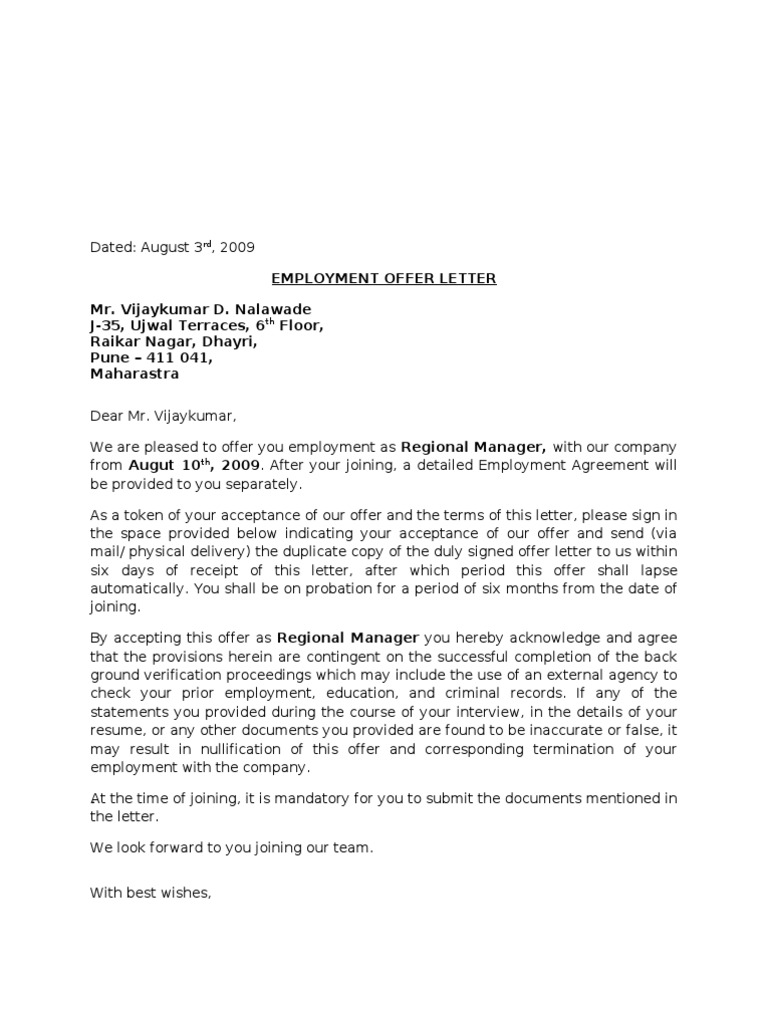Negotiating Your Salary: Addressing A 'Best And Final' Job Offer

Table of Contents
Understanding the "Best and Final Offer" Tactic
Why do employers use this tactic? It's often a negotiating strategy designed to end the salary discussion and secure a candidate at a pre-determined price point. The psychology behind it is simple: creating a sense of urgency and potentially leveraging the candidate's enthusiasm for the role. However, it's crucial to remember that it's not always the absolute final offer.
- Often a negotiating tactic, not always a true final offer. Many times, employers use this phrase to gauge your resolve and see how far you're willing to push for a better compensation package.
- Employers may be testing your resolve. They want to see if you're truly serious about the position and whether you're willing to walk away if your needs aren't met.
- Understanding their perspective is crucial for a successful negotiation. Remember, they're also looking for the best value for their investment. A skilled negotiator understands both sides of the table.
Assessing Your Own Position Before Responding
Before you formulate a response to a "best and final offer," take time to thoroughly evaluate your standing. This goes beyond simply focusing on the base salary.
- Evaluate the entire compensation package beyond just base salary. Consider benefits like health insurance, retirement plans (401k matching, pension), paid time off (PTO), and any other perks offered (stock options, bonuses, professional development funds).
- Consider your research and market value. Have you thoroughly researched industry salary benchmarks for your role, experience level, and location using resources like Glassdoor, Salary.com, Payscale, and LinkedIn Salary?
- Review your research on industry salary benchmarks. Use this data to justify any counteroffer.
- List your non-negotiables and your ideal salary range. Knowing your boundaries is crucial for a successful negotiation.
- Assess the overall value proposition of the job (benefits, perks, career growth). Sometimes, a slightly lower salary can be offset by other valuable aspects of the position.
Crafting a Strategic Counteroffer (If Appropriate)
A counteroffer isn't always necessary or appropriate. However, if your research shows that the initial offer significantly undervalues your skills and experience, a carefully crafted counteroffer could be effective.
- When a counteroffer is worth considering: If the initial offer is significantly below your research-based market value and you genuinely desire the position.
- Focus on specific aspects of the compensation package. Don't just ask for a higher salary; justify your request. For example, you might say, "Based on my research and experience in [specific area], the industry average salary for this role is between X and Y. Given my expertise in [specific skills], I would be seeking a salary within that range."
- Justify your request with data and market research. Numbers speak volumes. Use your research to back up your request.
- Maintain a professional and respectful tone. Even if you're disagreeing, maintain a polite and courteous demeanor.
- Example counteroffer phrasing: "I appreciate the offer and the opportunity to join your team. After reviewing the compensation package and conducting further research on comparable roles, I would like to counter with a salary of [your desired salary]. This reflects my experience in [relevant skills] and the market value for this position."
Handling a Firm "No" – Alternatives and Next Steps
If, after presenting your counteroffer, the employer remains firm, you need to decide on your next steps.
- Gracefully accepting the offer or respectfully declining it. Both responses require professionalism and clarity.
- Reiterate your appreciation for the opportunity. Regardless of your decision, express gratitude for their time and consideration.
- Communicate your decision clearly and professionally. Be direct and concise.
- Consider your long-term career goals. Does this job still align with your future aspirations, even with the lower-than-desired compensation?
- Reflect on the negotiation process for future opportunities. Learn from the experience to improve your negotiation skills for future job searches.
Preventing "Best and Final Offers" in Future Negotiations
Proactive steps can minimize the likelihood of encountering a "best and final offer" situation.
- Set clear salary expectations early in the process. During initial recruiter conversations, clearly state your salary expectations or range.
- Emphasize the importance of demonstrating your value throughout the interview process. Highlight your accomplishments and contributions throughout the interview process, reinforcing your value.
- Research salary ranges before interviews. Know your worth before you even start the application process.
- Highlight your accomplishments and value proposition during interviews. Quantify your achievements and demonstrate your impact.
- Clearly communicate your salary expectations in the initial stages. This prevents any surprises or misunderstandings later.
Conclusion
Successfully navigating a "best and final offer" requires preparation, strategic thinking, and clear communication. By understanding the employer's perspective, assessing your own position, and crafting a well-reasoned counteroffer (when appropriate), you can significantly increase your chances of securing a more favorable salary. Remember, salary negotiation is not simply about achieving the highest possible figure; it's about establishing fair and equitable compensation that accurately reflects your value and expertise.
Call to Action: Don't let a "best and final offer" intimidate you. Master the art of salary negotiation and confidently secure the compensation you deserve. Learn more about effective salary negotiation strategies today!

Featured Posts
-
 Tu Horoscopo Semanal Del 11 Al 17 De Marzo De 2025
May 23, 2025
Tu Horoscopo Semanal Del 11 Al 17 De Marzo De 2025
May 23, 2025 -
 Currans Prediction A Difficult Bd Process Ahead
May 23, 2025
Currans Prediction A Difficult Bd Process Ahead
May 23, 2025 -
 First Reactions To Karate Kid Legend Of The Karate Kid Highlight Strong Performances By The Cast
May 23, 2025
First Reactions To Karate Kid Legend Of The Karate Kid Highlight Strong Performances By The Cast
May 23, 2025 -
 Landslide Threat In Swiss Alps Livestock Evacuation By Helicopter And On Foot
May 23, 2025
Landslide Threat In Swiss Alps Livestock Evacuation By Helicopter And On Foot
May 23, 2025 -
 Exclusive Trumps Assessment Of Putins War Aims Revealed
May 23, 2025
Exclusive Trumps Assessment Of Putins War Aims Revealed
May 23, 2025
